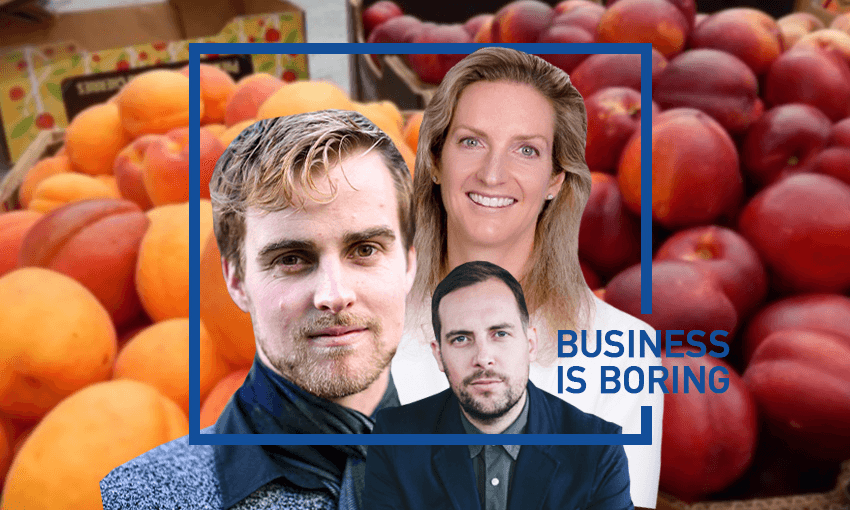Business is Boring is a podcast series presented by The Spinoff in association with Callaghan Innovation. Host Simon Pound speaks with innovators and commentators focused on the future of New Zealand. This week he talks to Campbell Ellison from Callaghan Innovation and Alexandra Allan, CEO of FoodBowl.
One of the coolest things about Business is Boring is when listeners, inspired by the people we talk to, share their ideas for cool products. Just the other day a friend talked about an idea for an innovative food product, and I was able to tell him about the existence of the FoodBowl – which provides support and resource for companies and innovators looking to move from small scale to the big time.
He was amazed to learn that there is a facility that is part commercialisation and export readiness lab and part mad scientist workshop where food technologists, scientists and other enthusiastic inventors tinker, explore and create new food ideas. It’s an open access service supported by Callaghan Innovation and run by the Auckland chapter of the NZ Food Innovation Network.
We’ve talked before to people like Angus Brown from Arepa who’ve been through it, so it is super cool to today be able to share a bit more about how it operates and how you could get involved.
This week on the podcast we’re joined by food and beverage technologist Campbell Ellison from Callaghan Innovation, and Alexandra Allan, FoodBowl CEO, who also has a background in making things, working through outfits like Cadbury and Horleys, before she turned to management.
Either download this episode (right click and save), have a listen below or via Spotify, subscribe through iTunes (RSS feed).


